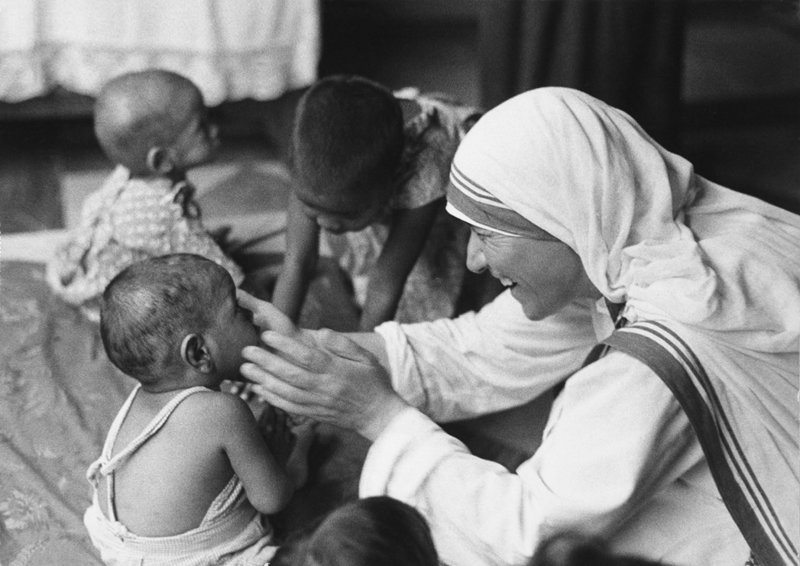Fausto Gomez OP
Contemporary Christian spirituality attempts at avoiding two extremes: “spiritualism” (the individualistic and escapist fuga mundi and contemptus mundi) on one hand, and “activism” (human and social promotion disconnected from prayer and contemplation) on the other.
In other words, authentic spirituality tries to avoid an escapist spiritual life and self-righteousness, and a worldly activism overcrowded with external social activities. Many Christians with other religious people try seriously to follow the example of the mystics, the saints, the good Christians, who the more they were united with God in contemplation, the more they committed themselves to the neighbor, in particular to the poor and wounded neighbor. Certainly, the saints are the ones who renew the world. Gandhi said that our world needs saints not politicians. (Of course, politicians can also be saints).
Christian spirituality has a transcendent and an immanent dimension, which entails love of God and love of neighbor, mystical and liberating aspects, contemplation and action. It is, as Simon Chan asserts, neither “an ahistorical interiority” nor “an uncritical involvement in the historical (more often, sociopolitical).” Nevertheless, one cultural context may focus more on one than on other dimensions, for instance Philippine Theology stressed more its liberating aspect while other Asian cultures center on contemplation.
We wish to suggest four characteristics that could perhaps be in any Christian spirituality in the third millennium: a Christ-centered, mystical, liberating, and ecological spirituality.
Yesterday, today and tomorrow, Christian spirituality is (1) a Christo-centric spirituality focused on Jesus Christ, the Son of God and the perfect man who is “the image of the invisible God” (Col 1:15) and reveals to humanity the highest dignity of the human person. Moreover, Christ by dying on the Cross reveals to men and women the gravity of sin and their need of a savior. Christ is the universal Redeemer. In him, “there is no West or East; / in him, there is no South or North. / But one great fellowship of love / Throughout the whole wide earth” (John Oxenham).
Every Christian is a follower of Christ and a constant searcher of Christ in our world. Like the two followers of John the Baptist, the disciples of Jesus ask him: “Rabbi, where do you live?” (cf. John 1:38-39). We firmly believe that Jesus lives, and that He is present in the Church, in the sacred Word, in prayer, in the Sacraments – in particular, in the Holy Eucharist -, and in the poor and sick.
True Christian spirituality is (2) a mystical spirituality. There is today a rebirth of mysticism and the attraction of mystical life. Authentic mystical life is not an aristocratic and elitist one, but a mystical life which is reachable with God’s grace by all faithful Christians and people of good will. Mystical life is understood as loving union with God the Father through Christ, by the power of the Holy Spirit. All Christians are called to holiness, to the mystical union with Christ, although only some receive special graces or extraordinary signs of the mystical life which after all are not necessary at all as mystics themselves affirm repeatedly. What matters is doing God’s will.
Following Christian tradition, mysticism is always accompanied by asceticism. Writes Joseph Phan Tan Thanh: “Asceticism and mysticism are so intermingled that there is never a purely ascetical state or a purely mystical state.” Spiritual progress implies asceticism, a real asceticism that includes mortification, sacrifice and discipline, and fights a too comfortable life which lacks passionate love for God and is an obstacle to progress in spiritual life. An internal and external ascetical life leads gradually to abandon sin, live the Beatitudes, and embrace patiently and even joyfully the cross of life.
Christian spirituality is (3) a liberating spirituality, that is, a spirituality committed to justice, to charitable justice. Charitable justice is justice plus love, a justice graced by charity, which is the form of all virtues: charity directs all virtuous actions to the end: to God. The Sacred Scriptures make clear that authentic love of God is also love of neighbor – a love that necessarily implies justice; and love of neighbor is love of all neighbors. Saint Paul VI stated that the model of the spirituality of the Second Vatican Council is the story of the Good Samaritan. Charity is God’s love in us and, therefore, like the love of God, a universal love which is primarily addressed to the poor and wounded, as it is clearly shown in the Bible, particularly by all the prophets and, above all, by the Prophet Jesus Christ. Pope Francis underlines frequently mercy or compassion as the distinguishing characteristic of God and of the authentic Christian. In this context, the Asian Bishops wrote: “The search for holiness and the search for justice, evangelization and the promotion of true human development and liberation are not opposed, but make up today the integral preaching of the Gospel especially in Asia.”
Spirituality today is (4) an ecological spirituality. Some theologians speak of “cosmic spirituality.” The fourth concern of any spirituality today: ecological sensitivity and responsibility. Spiritual theology listens to the signs of the times. One sign, or a messenger of God’s word today is, as Pope Francis makes powerfully clear, ecological awareness and responsibility. Without making climate change an ideology but a global cause that respects human ecology and includes – in the environmental debates – questions of justice. In a world of plenty, many poor and needy (and the number keeps growing due partly to the novel coronavirus Covid-19) do not yet sit – as Pope Paul VI said they should – in the banquet of life. In his ecological encyclical, the Argentine Pope repeatedly connects – something apparently forgotten by some environmental activists – “the cry of the earth” with “the cry of the poor.” Indeed, an integral spiritual life, focuses on the loving union with God, merciful love of the poor neighbors, and respectful and responsible care of the universe, our common home.


 Follow
Follow


